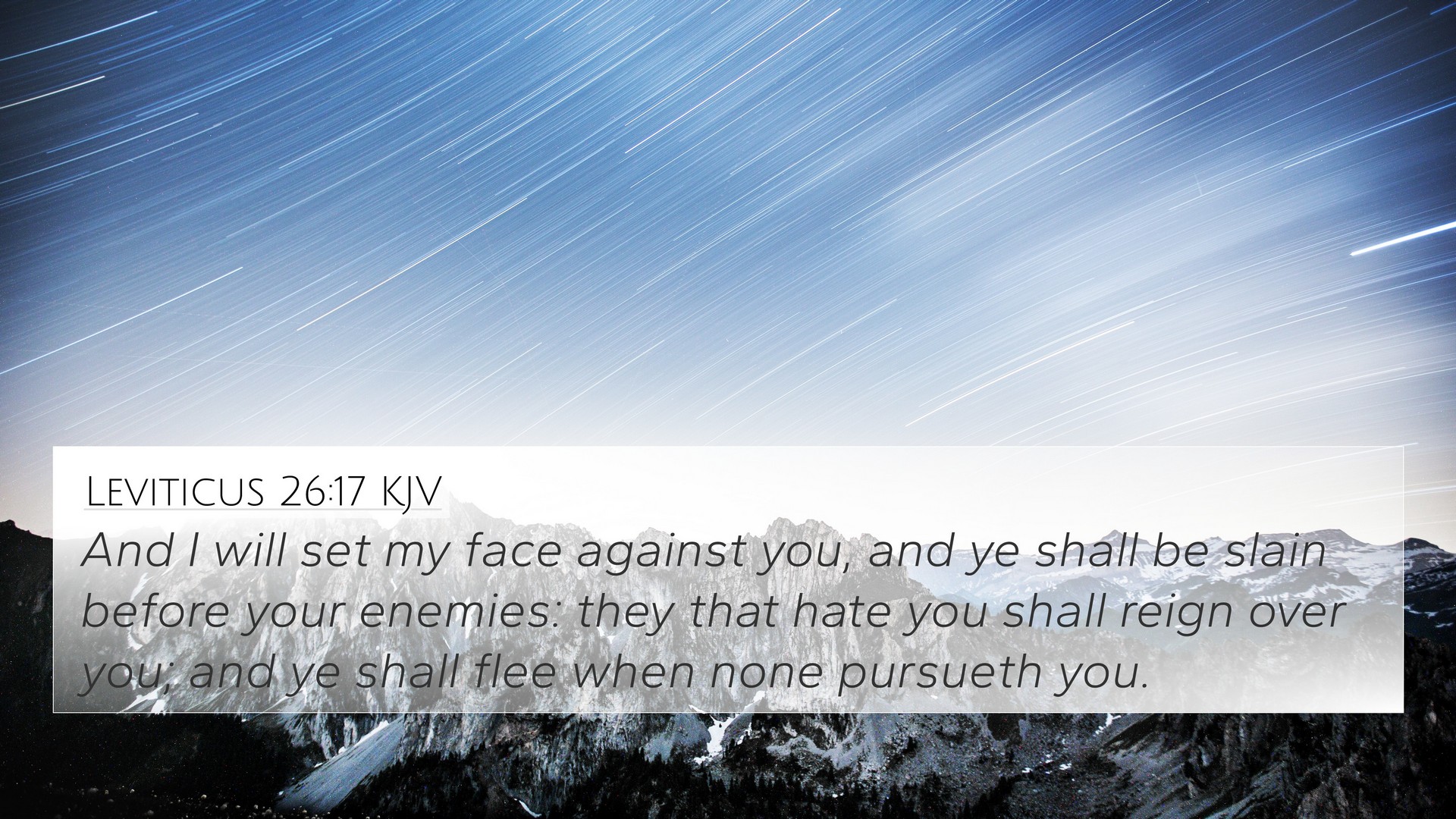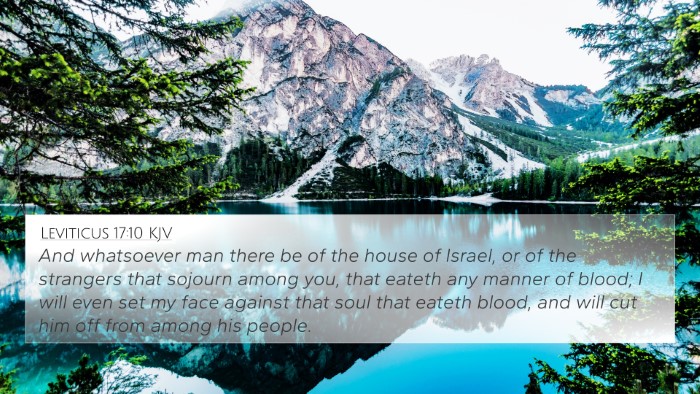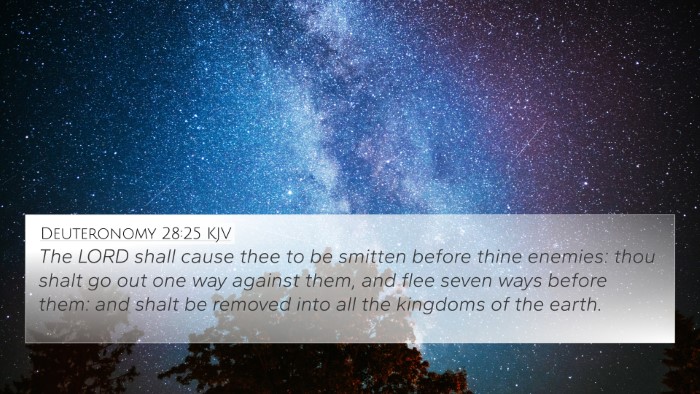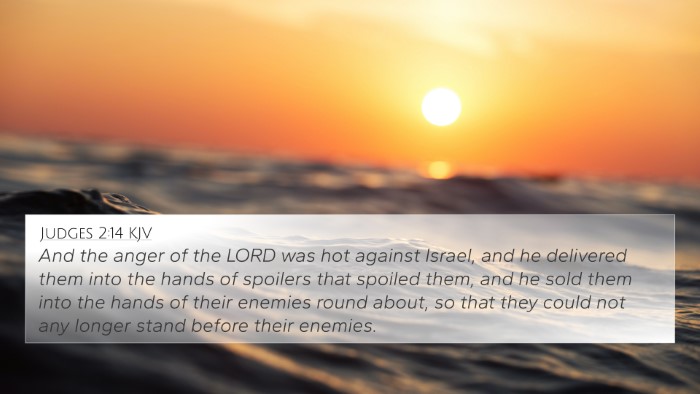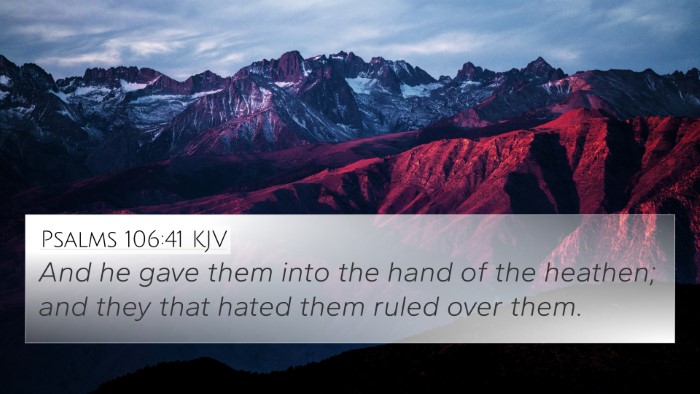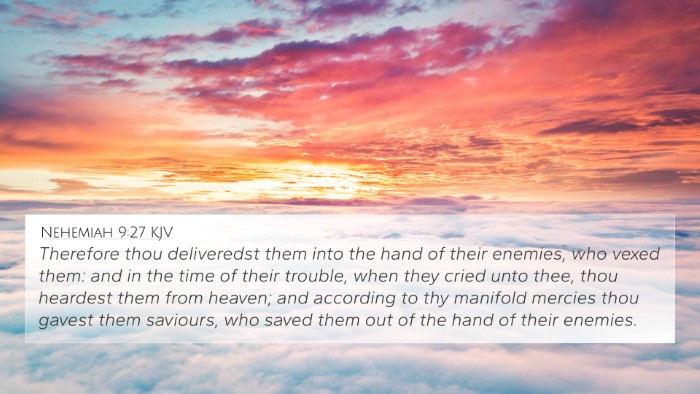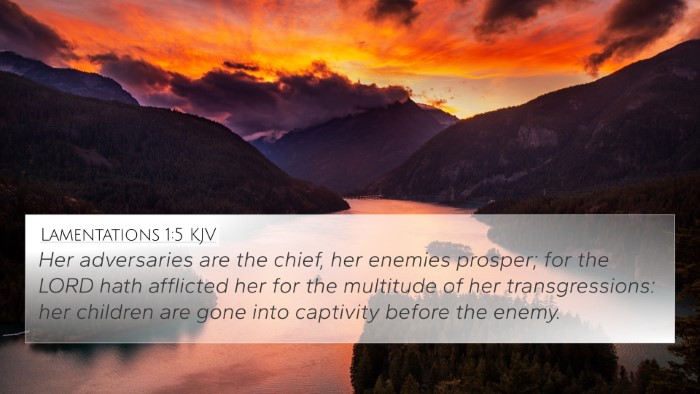Understanding Leviticus 26:17
Leviticus 26:17 states, "And I will set my face against you, and ye shall be slain before your enemies: they that hate you shall reign over you; and ye shall flee when none pursueth you." This verse encapsulates the severe consequences faced by the Israelites due to disobedience and unfaithfulness to God. Here, we explore the meanings and implications of this scripture, supported by insights from respected public domain commentaries.
Overall Meaning
This verse highlights God's response to the people's disobedience, indicating not only His displeasure but also the consequence of His withdrawal of protection. When God 'sets His face against' a people, it signifies a turn from favor to judgment. The harsh reality presented here serves as a reminder of the covenant relationship between God and Israel.
Insights from Commentaries
Matthew Henry's Commentary
Henry emphasizes the gravity of God's judgment that will befall Israel if they turn away from Him. The imagery of fleeing without pursuers illustrates a state of panic and despair among those once secure in God's promise. This serves as a stark warning against disobedience.
Albert Barnes' Notes
Barnes connects this verse to the idea that when God removes His protective hand, chaos ensues. He points out that it serves to remind the Israelites of their covenant responsibilities and the need for obedience to avoid dire consequences.
Adam Clarke's Commentary
Clarke offers a historical perspective, showing how Israel's unfaithfulness led to oppression by their enemies. The phrase 'they that hate you shall reign over you' indicates a reversal of Israel’s fortunes, where they fall prey to their oppressors, highlighting the importance of fidelity to God’s commandments.
Cross-References
Leviticus 26:17 connects well with various other scriptures, enriching our understanding through comparative Bible verse analysis. Here are some relevant cross-references:
- Deuteronomy 28:25 - "The LORD will cause you to be defeated before your enemies..."
- Isaiah 54:8 - "In a surge of anger I hid my face from you for a moment..."
- Jeremiah 5:12-13 - "...they have belied the LORD, and said, It is not he; neither shall evil come upon us..."
- Ezekiel 39:23 - "...and the heathen shall know that the house of Israel went into captivity for their iniquity..."
- Psalm 44:11-12 - "Thou hast given us like sheep appointed for meat; and hast scattered us among the heathen."
- Romans 1:18-32 - God's wrath against unrighteousness reflects the consequences of forsaking Him.
- Revelation 3:19 - "As many as I love, I rebuke and chasten: be zealous therefore, and repent."
Thematic Connections
The connections between Bible verses allow for deeper understanding of God's nature and our responsibilities. Key themes arise from this verse:
- Divine Judgment - God's judgment can manifest as withdrawal of support.
- Consequences of Disobedience - Israel's fate is a lesson in the necessity of fidelity to God.
- The Covenant Relationship - Reflecting on the blessings and curses tied to obedience and disobedience.
Conclusion
Leviticus 26:17 is a sobering reminder of the dangers of disobedience and the consequences that follow. By utilizing tools for Bible cross-referencing, one can discern the interconnectedness of scriptures, revealing deeper theological truths and themes throughout the Bible. Understanding this verse within its broader Biblical context not only enhances our study but also fosters spiritual growth and awareness of God's eternal principles.
